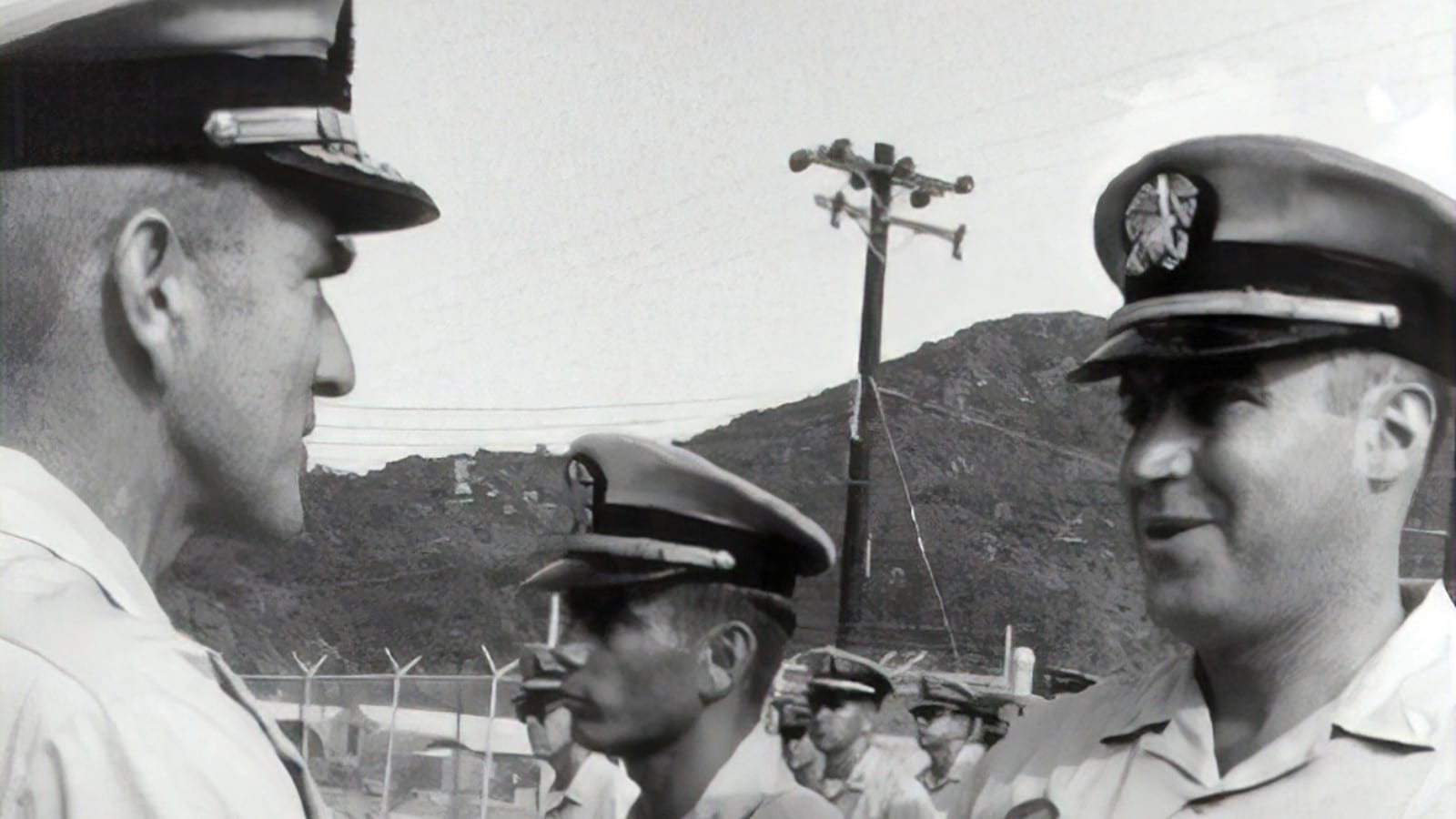On October 14, 1968, Michael Bernique, then a 24-year-old swift boat skipper on patrol along the Vietnam-Cambodia border, was told by a group of friendly Vietnamese that Viet Cong “tax collectors” were extorting payments from locals along a nearby stretch of inland canal. Fluent in the local French, having lived as a boy with his French-speaking grandparents in New Bedford, Massachusetts, Michael fully understood the situation, but he was in a bind. At that time, Navy regulations restricted the heavily armed 50-foot aluminum boats to coastal patrol.
Michael knew the Viet Cong were using the inland waterways for their operations. In his younger days he had not shown an excessive deference to authority, having been expelled from prep school before he was “straightened out,” as he put it, by Williston Academy headmaster Phillips Stevens. The consequences of disobedience here, however—potential court martial—were considerably more severe. Still, notes his wife, Michele (Mimi) Bernique, “If he believed in something, he acted on it. That’s how Michael lived his life.”
And so, disregarding the Navy policy, Michael and his five-man crew steered their swift boat up the Rach Giang Thanh River, where they surprised and killed a number of Viet Cong, confiscated their weapons, and gathered intelligence. When word of the assault reached the Navy command, the young skipper was called to Saigon to answer for his actions. Meeting with Admiral Elmo Zumwalt Jr., the chief of naval operations, Michael was so persuasive in his reasoning that instead of sanctioning him, Zumwalt awarded him the Silver Star, the military’s third highest combat decoration, (pictured above) and changed the Navy’s swift boat policy. The waterway where the battle took place was thereafter known as Bernique’s Creek.
Michael, who died in 2016 at age 72 after a difficult fight with cancer, would go on to demonstrate similar leadership skills at numerous corporations in his long and successful business career. He held top management positions at IBM, Exxon, Federal Signal Corp, Northern Telecom, Motorola, and General Instrument, among others, noting, with his typical humor, “I never figured out if I was in high demand or just couldn’t keep a job.” Through it all, he saw his time at Williston as instrumental in putting him on the right path. “The education and the guidance that he received from Williston really changed his life,” notes Mimi. “Williston took him from being a rebellious kid into being a more thoughtful, education-minded young man.”
And now Michael has shown his appreciation for Williston in a generous financial aid bequest to the school, one of three educational institutions that will be receiving the bulk of his estate. “It shows his beliefs about education,” explains Mimi, “and how it very much mattered in his life’s journey.”
Michael’s own childhood was unsettled, as his parents moved frequently. HIs love of reading, keen intellect, and independent nature often came into play. He attended nine different schools before graduating from Williston in 1961, then went on to earn his undergraduate degree at Notre Dame, spending a year abroad at the prestigious Paris Institute of Political Studies, or Sciences Po.
Perhaps because Headmaster Stevens was no longer keeping an eye on him, Michael rarely attended class in France but, in a characteristic display of audacity, nonetheless managed to earn his Certificat D’Etudes Politiques in 1964. “He quickly determined that every lecture was recorded by stenographers,” Mimi explains. “So off he goes with his girlfriend and travels France. When it was time for the exams, he got transcripts of all of the classes, and because he had an incredible memory, he crammed and aced them.”
Upon graduating from Notre Dame, Michael joined the Navy and served on a destroyer before being posted to Vietnam. “He was such a leader by nature,” notes Mimi, “that he volunteered for Vietnam because he wanted to be in a command position.” After his discharge, in 1970, he earned his master’s degree in International Relations at the University of Chicago. Soon after, he met his first wife, Diana, and they were married from 1972 until her death in 2010 from health complications related to her diabetes.
In late 2011, he and Mimi were married, but just a few months after the wedding, Michael was diagnosed with squamous cell carcinoma of the face. Despite four years of aggressive treatment, including some 80 rounds of radiation, 75 hyperbaric oxygen sessions, and multiple surgeries and courses of chemotherapy, Michael died on March 18, 2016. He was buried at Arlington National Cemetery with full military honors.
In confronting his illness, notes Mimi, Michael demonstrated the bravery and conviction that characterized his life, beginning all those years ago in Vietnam. “He approached cancer with the belief that we’re going to beat this, we’re going to solve this, we’re going to battle this,” she says. “He went up the river.”

